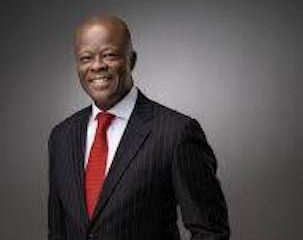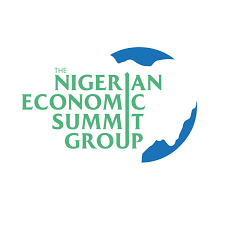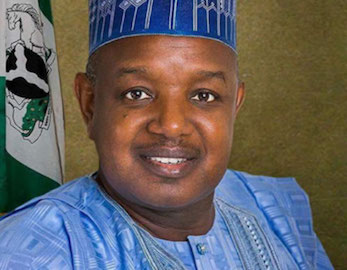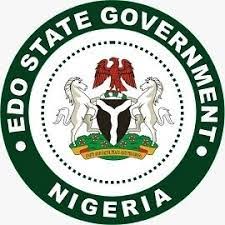Economy
FEC Proposes N10.729trl For 2020 Budget
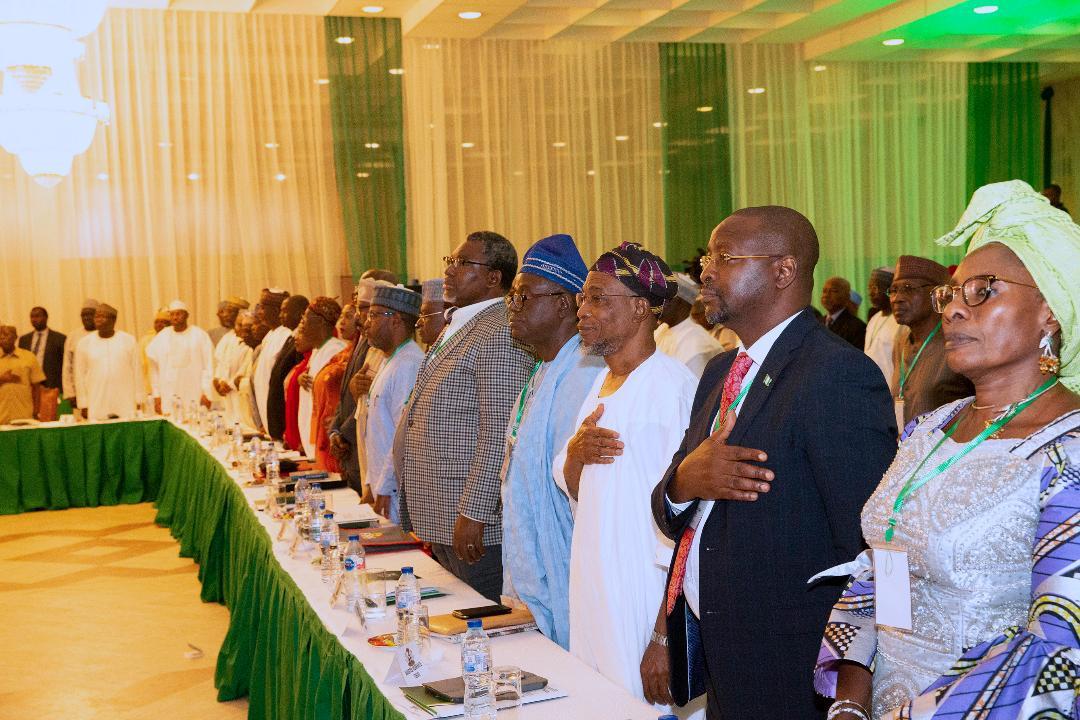
By Mathew Dadiya, Abuja
The Federal Executive Council (FEC), has consented to the N700 billion increase in the Medium Term Expenditure Framework and Fiscal Strategy Paper (MTEF-FSP) by the National Assembly raising the total figure from N10.O02 trillion to N10.
729 trillion.President Muhammadu Buhari will Tuesday present the figure as 2020 budget to the National Assembly in an Appropriations Bill.
.The changes in the appropriation bill was endorsed on Monday, at the Extraordinary meeting presided over by President Muhammadu Buhari at the Council Chamber of the Presidential Villa, Abuja.
The Council commended the National Assembly for the increment of the crude oil benchmark from $55 per barrel to $57 per barrel.
When the senate took the decision, there were insinuations that the executive may reject the jerking up of the proposed budget size in the MTEF with over N700 billion.
Though the ministers did not disclose officially the outcome of the extraordinary meeting which lasted about five hours, but DAILY ASSET reliably gathered that members of the cabinet commended the legislators for increasing the benchmark.
The source who spoke on the condition of anonymity said, “FEC is happy with the National Assembly for increasing the benchmark to $57 per barrel. The additional $2 is to take care of recruitment in the security agencies and also attend to critical areas.
“This is a sign that the legislature and the executive will work together for the interest of Nigerians. It is a good development.”
The extraordinary FEC meeting DAILY ASSET was told, deliberated on the 2020 Appropriation Bill expected to be laid before the joint session of the National Assembly by Buhari.
Departmental heads of the Federal Ministry of Finance, Budget and National Planning led by the Director General of Budget, Ben Akabueze made submissions at the meeting, it was further learnt.
The extraordinary FEC meeting originally scheduled to hold on Saturday last week was shifted to Monday.
According to the Special Adviser to the President on Media and Publicity, Femi Adesina, the meeting was called to put finishing touches to the 2020 annual budget.
DAILY ASSET recalls that the Senate had sought the increase of the oil benchmark from $55 per barre to $65 per barrel so as to have some funds to be injected into the economy.
The senate had noted that the nation’s economic growth which was less than three percent was poor.
The upper chamber also argued that injecting money into the economy would help in the provision of infrastructure, security as well as other critical sectors. .
”We have seen an economic growth that is less than three percent. For a developing country, three percent economic growth is poor, it is not good enough. This is not a figure that we will be looking at as a developing country.
“China has growth rate of five and six percent, India has growth rate of nine to ten percent. So for a developing country that wants to get to where we want to get to, a two to three percent economic growth rate is very poor.
“So, what does this mean? It means that we need to invest more in the economy, it means that there has to be more capital inflow into the economy, it means that the amount we are spending on infrastructure, security and other vital critical areas must be increased.
“But where is the money? The money is there. If you raise the oil benchmark from $55 per barrel to $65 per barrel bearing in mind that the average price of crude oil has gone to $70 per barrel.
“We easily realize enough money to begin to invest in some of these critical areas. So, my proposal is that the Finance Committee considers raising the benchmark for crude oil for the purposes of this budget from $55 per barrel to $65 per barrel.
“You will have enough money to begin to invest in security and other critical areas, ” the senate explained.
Economy
Customs Zone D Seizes Contraband Worth N110m

The Nigeria Customs Service (NCS), Federal Operation Unit (FOU), Zone D, has seized smuggled goods worth over N110 million between April 20 till date.
The Comptroller of Customs, Abubakar Umar, said this at a news conference on Tuesday in Bauchi.
He listed the seized items to include 11,200 litres of petrol; 192 bales of second hand clothing, 140 cartons of pasta, 125 pairs of jungle boots, 47 bags of foreign parboiled rice and 9.
40 kilogramme of pangolin scales.Umar said the items were seized through increased patrols, intelligence-led operations, and strengthened inter-agency collaboration.
The comptroller said the pangolin scales would be handed over to the National Environmental Standards and Regulations Enforcement Agency (NESREA) for appropriate action, while the seized petrol would be auctioned, and the proceeds remitted to the federation account.
He attributed the decrease in smuggling activities of wildlife, narcotics, and fuel to the dedication and professionalism displayed by the personnel in line with Sections 226 and 245 of the NCS Act 2023.
The comptroller enjoined traders to remain law abiding, adding the service would scale up sensitisation activities to combat smuggling.
“We remain resolute in securing the borders and contributing to Nigeria’s economic development,” he said.
The FOU Zone D comprises Adamawa; Taraba, Bauchi, Gombe, Borno, Yobe, Plateau, Benue and Nasarawa. (NAN)
Economy
Trade Tensions: Global Economy Stands at Fragile Turning Point -UN
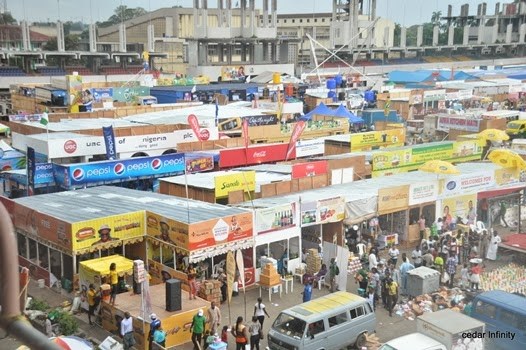
The UN Department of Economic and Social Affairs (UN DESA) has said that the global economy stands at a fragile turning point amid escalating trade tensions and growing policy uncertainties.UN DESA, in a report published on Thursday, stated that tariff-driven price pressures were adding to inflation risks, leaving trade-dependent economies particularly vulnerable.
It stated that higher tariffs and shifting trade policies were threatening to disrupt global supply chains, raise production costs, and delay key investment decisions – all of this weakening the prospects for global growth. The economic slowdown is widespread, affecting both developed and developing economies around the world, according to the report.For instance, in the United States, growth is projected to slow “significantly”, as higher tariffs and policy uncertainty are expected to weigh on private investment and consumer spending.Several major developing economies, including Brazil and Mexico, are also experiencing downward revisions in their growth forecasts.China’s economy is expected to grow by 4.6 per cent this year, down from 5.0 per cent in 2024. This slowdown reflects a weakening in consumer confidence, disruptions in export-driven manufacturing, and ongoing challenges in the Chinese property sector.By early 2025, inflation had exceeded pre-pandemic averages in two-thirds of countries worldwide, with more than 20 developing economies experiencing double-digit inflation rates.This comes despite global headline inflation easing between 2023 and 2024.Food inflation remained especially high in Africa, and in South and Western Asia, averaging above six per cent. This continues to hit low-income households hardest.Rising trade barriers and climate-related shocks are further driving up inflation, highlighting the urgent need for coordinated policies to stabilise prices and protect the most vulnerable populations.“The tariff shock risks hitting vulnerable developing countries hard,” Li Junhua, UN Under-Secretary-General for Economic and Social Affairs, said in a statement.As central banks try to balance the need to control inflation with efforts to support weakening economies, many governments – particularly in developing countries – have limited fiscal space. This makes it more difficult for them to respond effectively to the economic slowdown.For many developing countries, this challenging economic outlook threatens efforts to create jobs, reduce poverty, and tackle inequality, the report underlines. (NAN)Economy
FG To Finalize N1.5trn Road Concession Project- Edun

The Minister of Finance and Coordinating Minister of the Economy, Mr Wale Edun, says the Federal Government will soon finalise N1.5 trillion road concession project.
Edun made the statement during a meeting with some private sector investors in Abuja on Wednesday.
He said that the government was on the verge of finalising the landmark N1.
5 trillion road concession project, launched in 2021 under the Highway Development and Management Initiative (HDMI).The minister said that the initiative aimed to involve private sector partners in the reconstruction and management of nine major highways across the country, spanning approximately 900 kilometers.
He said that the partners had almost completed all arrangements for the highways, which they would finance, rebuild, and maintain under 25-years concession agreements.
Edun said that the concessionaires were expected to recoup their investments through tolling fees.
“We met the concessionaires who have virtually concluded all the agreement arrangements for nine roads, nine major highways, which they are contracting to refinance the rebuilding of and to recover their funds from tolling fees under 25-year or so agreements.
“And we met them to iron out the remaining administrative obstacles for the kicking off construction of these roads,” he said.
Edun said that the substantial private sector investment would bridge budgetary gaps.
He added that it would also allow investors to undertake revenue-generating projects, leveraging their expertise and resources for long-term implementation and maintenance.
“Thereafter, it will be a question of signing the addendums and moving to the site.
“As you know, already the 125-kilometer Benin–Asaba Highway concession agreement has been signed. The addendum has been signed.
“All arrangements have been finalised, in fact, the ministry of works have handed over the road to the concessionaires.
“They have already started the preliminary arrangements for reconstruction of that road in place of a 10 lane highway.
“It is an investment, it’s a project and an initiative that will reduce the travel time between Benin and Asaba right up to the Niger Bridge,” the minister said.
Edun said that the Benin–Asaba Highway project, which has already commenced, is expected to reduce travel time between Benin and Asaba from four hours to one hour, significantly enhancing productivity and efficiency in the region.
He described the HDMI, launched in 2021, as a strategic programme by the federal government aimed at attracting private sector investment to improve Nigeria’s federal road network.
Edun said that the initiative seeks to address the challenges of inadequate funding and maintenance by leveraging Public-Private Partnerships (PPP) to develop and manage road infrastructure.
Under the HDMI, 12 highways were initially selected for concession, covering a total of 1,963 kilometers.
These roads include Benin–Asaba, Abuja–Lokoja, Kano–Katsina, Onitsha–Owerri–Aba, Shagamu–Benin, Abuja–Keffi–Akwanga, Kano–Shuari.
Others are Potiskum–Damaturu, Lokoja–Benin, Enugu–Port Harcourt, Ilorin–Jebba, Lagos–Ota–Abeokuta, and Lagos–Badagry–Seme roads.
The minister said that the initiative was projected to generate over 50,000 direct and 200,000 indirect jobs, contributing significantly to the country’s economic growth and development.
The Minister of Works, Engineer David Umahi who joined the meeting virtually reassured the private sector partners on the HDMI of the federal government commitment.
He said that everything possible would be done to resolve the contending issues, adding he will soon be back to address all pending issues.
One of the concessionaires, Mr Kola Karim, representing Shoreline, emphasised the need for right and enforceable documents stipulating the takeoff and handover dates, which would attract investors to invest their funds.
Other private sector partners also requested for the addendum to the original agreement to be signed that would enable toll sections of the completed highways while work was in progress on other sections.
They noted that each concessionaire has unique challenges that should be dealt with accordingly.
Also in the meeting were Minister of Budget and Economic Planning, Abubakar Bagudu, and the Director General Infrastructure Concession and Regulatory Commission (ICRC), Dr Jobson Ewalefoh




